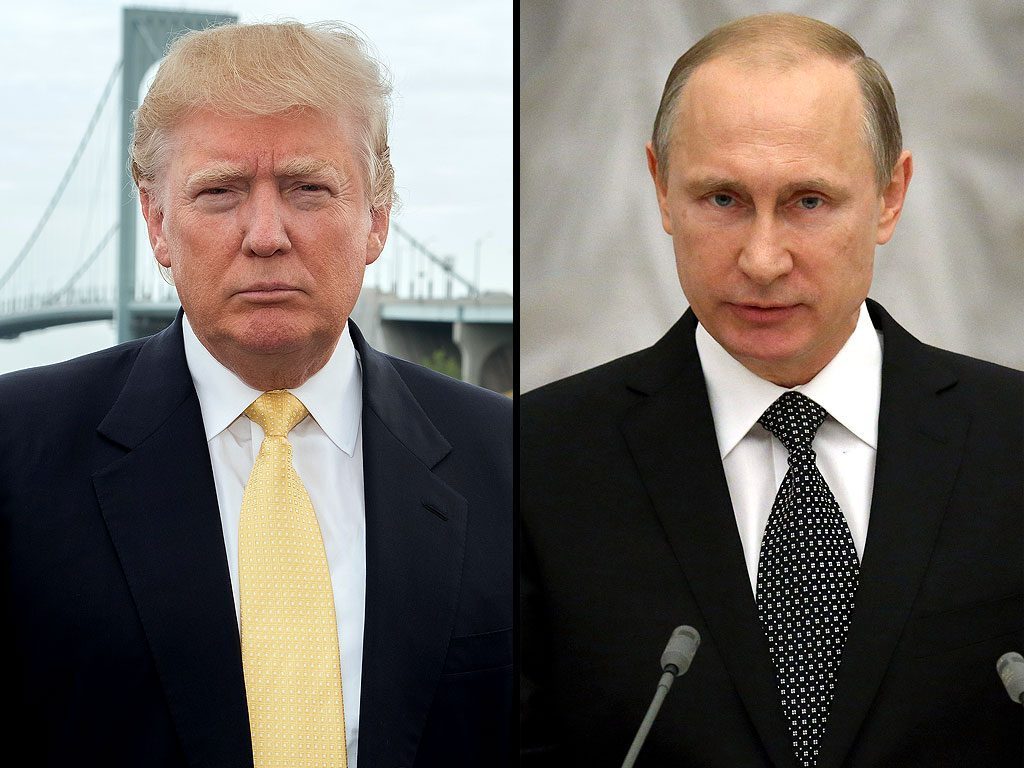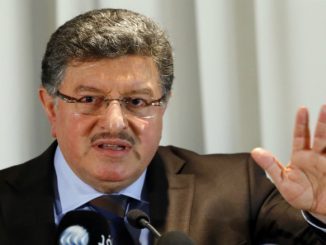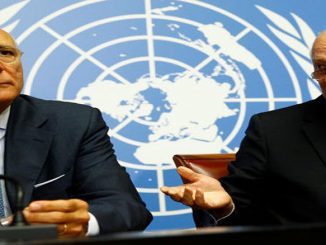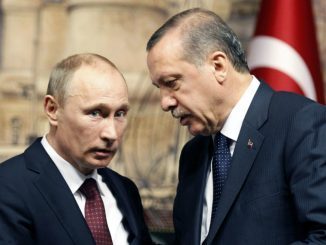
While diplomats in both the US and the EU seek to impose new sanctions on Russia over its intervention and crimes in Syria, the doubt is raised over Trump’s recent calls to improve relations with Russia and if he would refuse new sanctions.
Trump, who expressed respect for Putin during the campaign, spoke with the Russian leader by phone Monday. The two leaders discussed a range of issues including “threats and challenges facing both nations,” the Trump transition team said in a statement
The Trump camp did not say whether the two leaders had discussed Syria on the Monday evening telephone call, but the Kremlin said they agreed on the need for joint efforts to fight terrorism and discussed the possibility of a settlement to the five-year Syrian conflict.
Putin was one of the first foreign leaders to congratulate Trump on November 9, noting specifically that Russia and the US shared a special responsibility to “sustain global stability and security”. It played well into Trump’s statement from last summer: “Wouldn’t it be nice if we got together with Russia and knocked the hell out of ISIS?”
One of the first things Trump is expected to do is coordinating with Putin to attack ISIS and also allowing Assad to remain in power.
Former U.S. Secretary of State, Hillary Clinton, criticized him for praising Putin as a strong leader and saying ties with Russia should be improved at a time when Moscow and Washington are at odds over Syria and Ukraine.
European leaders seek new sanctions on Russia
European leaders and President Barack Obama on Friday will discuss possible new sanctions for its bombing in Syria.
The meeting in Berlin, hosted by German Chancellor Angela Merkel and including the leaders of Britain, France, Italy and Spain.
A German official said the plan was to agree a renewal of EU sanctions against Russia, which were imposed in 2014 following Russia’s intervention in eastern Ukraine are due to expire at the end of January.
However, there is concern that Trump might move in the opposite direction after his inauguration.
“We’re in a really critical situation,” said the German official. “We have to prevent a situation where the EU rolls over the sanctions and then the new U.S. president comes in and lifts them.”
European officials fear that Russia will use the time before Trump’s inauguration to launch new offensives in Syria.
European Union leaders last month condemned Russia for its bombing of civilians in Aleppo and signaled that they could introduce new sanctions for its actions there if the bombing continued.
After a school bombing in Idlib that Russia was accused of, Britain’s Foreign Secretary vented his anger on Twitter, writing: ‘World will be sickened by Syrian school bombing. 20+ children dead.’
Boris’s statement isn’t the first of its kind. He previously said that Russia should be investigated for war crimes in the Syrian city of Aleppo and risks becoming a pariah nation, and called for demonstrations agianst Russia
French officials also have been grappling for ways to put new pressure on Russia after Moscow vetoed a French-drafted United Nations Security Council resolution on Syria. Idlib
France has previously announced it will ask the international criminal court to investigate possible war crimes committed in Syria’s Aleppo after more than 600 civilians were killed in the Assad-Russian offensive on the besieged city.
The German chancellor Angela Merkel wants to get other European Union member countries to agree to step up sanctions against Russia because of its role in the war in Syria.
Read more: Is Trump’s election a stab in Syrian revolution’s back?
US diplomats call for a response to Russia’s threat
Senior Democratic and Republican U.S. lawmakers want Washington to respond to Russia’s alleged interference Syria, despite President-elect Donald Trump’s calls to improve relations with it.
“Russia presents a very serious challenge for America. They’re not our partner. They’re a bully,” Senator Ben Cardin said.
“Russia’s attacks require a response. It’s clear that they were responsible for the cyber attack on our country in this past election,” Cardin added.
Cardin also said he wanted Obama to act before he leaves office on Jan. 20. Congress has already passed legislation giving the president the authority to take actions including imposing additional sanctions or sending more arms to Ukraine.
US legislators have passed a bill that would sanction the government of Syria and its supporters, including Russia and Iran, for war crimes and crimes against humanity in the country.
“We can see the ethnic cleansing going on. Even the UN calls this ‘crimes of historic proportions’. Enough is enough,” said Republican Ed Royce, who is also chairman of the foreign affairs committee, the bill’s lead sponsor.
Anyone that provides aircraft to Syria’s commercial airlines does business with the transportation and telecommunications sectors controlled by the Syrian government, or supports the country’s energy industry. They also would be subject to sanctions under the legislation.
“We want to go after the things driving the war machine: money, airplanes, spare parts, oil,” said Eliot Engel, the top Democrat on the House foreign affairs committee.
“Something needs to jolt this crisis out of its bloody status quo. This bill would give the administration more tools to do so. If you’re acting as a lifeline to the Assad regime, you risk getting caught up in the net of our sanctions.”
Russia launched an air campaign on September 30 last year in support of Syrian government forces, in a military intervention that has been widely credited with helping turn the balance of power in favour of President Bashar al-Assad.
Russia said its intervention aims at backing the Syrian government agaisnt ISIS and the other “terrorist groups” and they will not attack civilians.
Since then, at least 9,364 people have been killed in Russian raids, according to the Britain-based Syrian Observatory for Human Rights.
The monitor said the death toll included about 3,800 civilians and 5,500 fighters from the Islamic State (ISIS).
A further 20,000 civilians have been wounded in Russia’s year-long offensive of air strikes.



